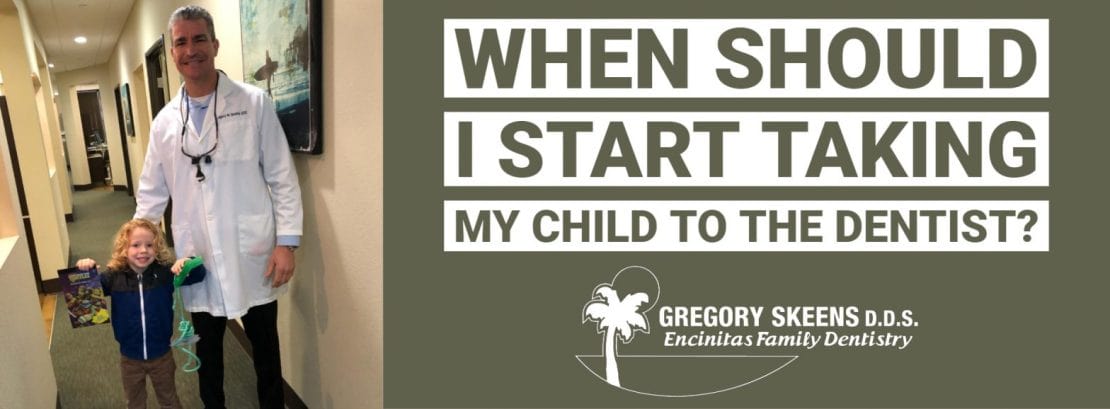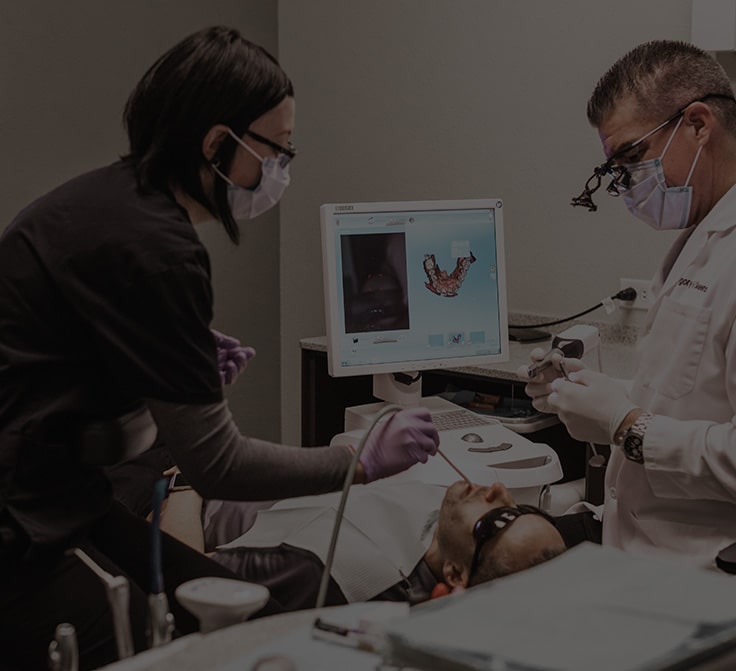
Often times, adults with major tooth problems admit to not having learned how to properly care for their mouths when they were younger.
Educating our children about the importance of oral hygiene is critical to ensure they maintain the health of their mouths into adulthood.
Children’s Oral Health Facts¹
- Our baby teeth form while we are still in our mothers’ wombs.
- Unfortunately, up to 75% of young children across the globe have at least one cavity.
- Children miss over 6 million school days because of a dental-related ailment or injury.
- Kids who drink more than 3 carbonated beverages each day have 62% more cavities than kids who don’t drink pop.
- American children spend close to half a billion dollars annually on chewing gum.
The Importance of Oral Hygiene During Childhood
Don’t wait until children become adults to teach them how to properly care for their mouths. In fact, there is arguably more urgency to teach kids about the importance of oral hygiene since children will have to care for two different sets of teeth in their lifetime.
While children still have their baby teeth, as a parent or educator, it’s your responsibility to encourage your kids to clean their teeth twice a day. If they can stick to a daily routine throughout their childhood, they should have no problem carrying over their regimen as they grow older.
It’s common knowledge that most children adore sugary treats and desserts. This is one of the biggest reasons to enforce proper mouth care in our youth; failure to do so will result in the development of cavities, which can force your children to require expensive dental work even before the eruption of their permanent adult teeth.
Child Dental Care Tips
Child dental care varies a little bit from adult dental care, namely because their teeth are smaller and impermanent. Special oral hygiene products are developed especially for children to motivate them to pick up their toothbrushes. These include toothbrushes decorated with popular media characters, colored toothpastes (that won’t stain their teeth), and different flavored mouthwashes.
- Teach dental hygiene to preschoolers by demonstrating how to brush your own teeth.
- Show your children to brush gently in a circular motion, starting at one side of the mouth and ending at the opposite side.
- Repeat the brushing for the bottom teeth.
- Remind your children to reach all the way to their back teeth. This can be challenging for kids with small mouths who also have sensitive gag reflexes.
- Start off by flossing your child’s teeth for them. Some technique is required for proper flossing, so this is one of the more difficult regimens to learn. Also, make sure to be gentle so as not to injure their gums.
- Create a chalkboard checklist and leave it near the bathroom sink to serve as a reminder for your children to brush twice each day. They will feel encouraged and motivated to tick off the checkboxes.
- Be patient and help your children brush and floss if they have difficulty in the beginning. They will gradually become more confident in cleaning their teeth on their own.
Morphology of Teeth
As mentioned above, we develop baby teeth, also known as milk teeth or primary teeth, before we are born. Children grow 20 primary teeth in total (10 on the top and 10 on the bottom of the mouth). Baby teeth are smaller, whiter, and smoother than adult teeth.
By the age of one or two, a child will start teething, which indicates the eruption of their baby teeth from their gums. This can be painful and irritating to many toddlers, so be prepared to treat the pain by using special teething toys.
Once your child reaches the age of 5-7, they should have their full set of baby teeth on display. This is the best time to enforce a proper oral hygiene routine, as they are now able to understand the importance of looking after their teeth.
Between the ages of 7-9, your child’s primary teeth will start to loosen to make way for their permanent adult teeth. Keep in mind that your child will be tempted to wiggle or nudge their baby teeth out of their gums. Try to encourage them not to play with their teeth too forcefully, as they will naturally fall out on their own.
It can be an exciting time in a child’s development as they lose their baby teeth. Support their imagination of the “tooth fairy”, and reward them for enduring the feat of making way for their adult teeth.
Your child’s adult teeth should emerge by the time they are 11-13. Our permanent adult teeth are larger and more rigid than our baby teeth. In addition, we sport 32 permanent teeth in adulthood (16 on the top and 16 on the bottom). Once your child has their full set of permanent teeth, they should be able to follow proper oral hygiene without assistance.
How Often Should a Child Go to The Dentist?
Most dental experts recommend bringing your child to the dentist no longer than six months after their first baby tooth emerges. On average, parents will start bringing their children to the dentist regularly by the age of 2-3. Once your child reaches the age of 3, it’s important to schedule check-up appointments every six months.
The first visit to the dentist can be scary and even traumatizing for some children. Dental procedures can seem invasive, especially if your child sees, hears, and feels the different tools being used to clean their teeth.
Pediatric dentistry differs from general dentistry:
- Pediatric dentists use smaller equipment to better fit the small mouths of children.
- Procedures are carried out with extra attention to the child, and can be paused in the event of any discomfort.
- Dentists who work exclusively with children are trained and prepared to deal with inevitable tantrums and hesitation.
- Education is a major component of pediatric dentistry, and your child’s pediatric dentist will be all too happy to demonstrate the importance of oral hygiene during childhood.
¹“Fun Dental Facts.” Imagine Smiles , www.imagine-smiles.com/fun-dental-facts.html.







 LEARN MORE ABOUT OUR GUIDING PRINCIPLES AT ENCINITAS FAMILY DENTISTRY
At our core, Encinitas Dentistry is a dental practice devoted to restoring and enhancing the natural beauty of your smile. How we accomplish that goal is what makes us stand out. We mingle time-tested approaches to oral care with state-of-the-art technology and procedures to deliver beautiful, long-lasting smiles!
LEARN MORE ABOUT OUR GUIDING PRINCIPLES AT ENCINITAS FAMILY DENTISTRY
At our core, Encinitas Dentistry is a dental practice devoted to restoring and enhancing the natural beauty of your smile. How we accomplish that goal is what makes us stand out. We mingle time-tested approaches to oral care with state-of-the-art technology and procedures to deliver beautiful, long-lasting smiles!